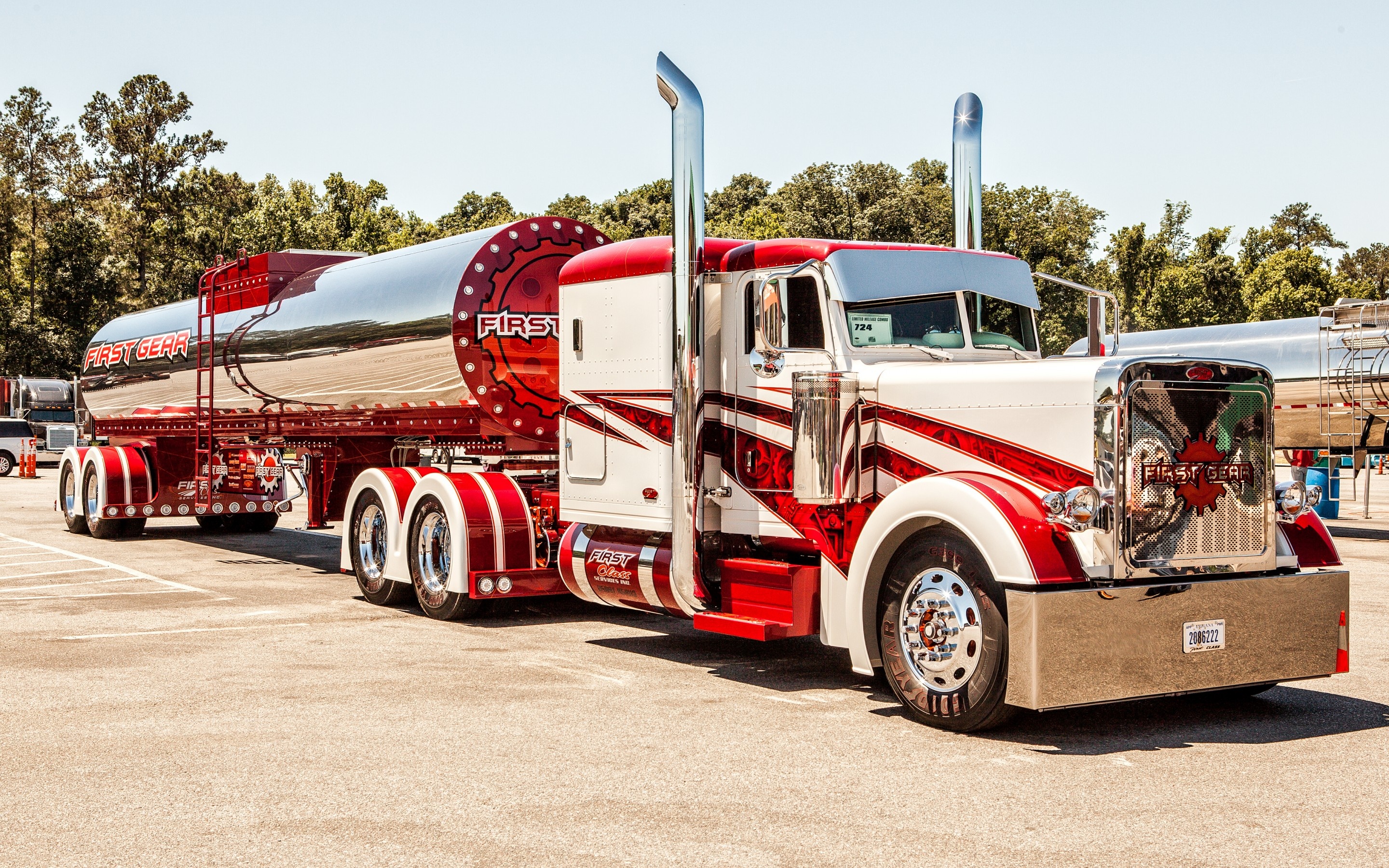The Ultimate Guide to Semi-Truck Junk: Salvage, Value, and What to Do With It
Introduction:
Semi Truck Junk
Semi-trucks, the workhorses of our nation's highways, eventually reach the end of their road. When a semi-truck is no longer roadworthy, dealing with the resulting "semi-truck junk" becomes a necessity. But what exactly constitutes "semi-truck junk," and what are your options for dealing with it? This comprehensive guide will walk you through everything you need to know, from assessing the value of salvaged parts to responsible disposal methods. Understanding the intricacies of semi-truck salvage can save you money and even provide a surprising return on investment.
Understanding "Semi-Truck Junk": Defining the Scope
The term "semi-truck junk" encompasses a broad range of conditions and components. It can refer to a completely totaled truck, a vehicle with significant mechanical failures, or simply a truck that's become too old and inefficient to operate profitably. More specifically, it includes:
-
Totaled Trucks: Vehicles involved in accidents that render them irreparable.

Mechanically Defective Trucks: Trucks with major engine, transmission, or other critical system failures.
-
Obsolete Trucks: Older models that are no longer cost-effective to maintain due to high repair costs and lower fuel efficiency.
-
Salvaged Parts: Components removed from damaged or non-operational trucks that can be resold or reused.

The value of semi-truck junk varies widely depending on the condition of the truck, the availability of salvageable parts, and current market demand.

Assessing the Value of Your Semi-Truck Junk: A Detailed Breakdown
Before deciding what to do with your semi-truck junk, it's crucial to determine its worth. This involves a thorough assessment of the truck's condition and the potential value of its individual components.
-
Engine Assessment:
The engine is often the most valuable part of a semi-truck. Even if it's not in perfect running condition, it can still be worth a significant amount for rebuilding or as a core for remanufacturing. Key factors influencing engine value include:
-
Engine Model: Newer, more popular engine models generally command higher prices.
-
Condition: A running engine is worth significantly more than one with major mechanical issues. However, even a non-running engine can be valuable if it has salvageable components.
-
Mileage: Lower mileage engines are typically more desirable.
-
Damage: Check for visible damage, such as cracks, leaks, or signs of overheating.
-
-
Transmission Evaluation:
Similar to the engine, the transmission is a valuable component. Its worth depends on its type (manual or automatic), condition, and compatibility with other trucks.
-
Type: Automatic transmissions are often more valuable due to their complexity and higher replacement cost.
-
Condition: A smoothly shifting transmission is worth more than one with slipping or grinding gears.
-
Model: The model and manufacturer of the transmission play a significant role in its value.
-
-
Axles and Suspension:
Axles and suspension components, especially those from newer trucks, can be valuable for repair shops or individuals building custom vehicles. Inspect for:
-
Damage: Look for bent axles, cracked suspension components, or signs of excessive wear.
-
Type: The type of axle (e.g., drive axle, steer axle) and suspension (e.g., air ride, leaf spring) will affect its value.
-
Completeness: A complete axle assembly is worth more than individual parts.
-
-
Body and Cab:
The condition of the truck's body and cab significantly impacts its overall value.
-
Rust: Extensive rust can severely reduce the value of the cab.
-
Damage: Dents, scratches, and collision damage will lower the value.
-
Completeness: A complete cab with doors, windows, and interior components is worth more than a stripped-down shell.
-
-
Other Components:
Don't overlook the value of other components, such as:
-
Tires and Wheels: Even used tires can be worth something if they have sufficient tread depth.
-
Electronics: ECMs (Engine Control Modules), sensors, and other electronic components can be valuable for replacement or repair.
-
Fuel Tanks: Aluminum fuel tanks can be sold for scrap or reuse.
-
Radiators and Coolers: These components can be valuable if they are in good condition.
Pro tips from us: When assessing the value, take detailed photos and videos of each component. This will help you accurately document the condition and provide potential buyers with a clear understanding of what they are purchasing.
-
Options for Dealing with Semi-Truck Junk: A Comprehensive Overview
Once you've assessed the value of your semi-truck junk, you have several options for dealing with it. Each option has its own advantages and disadvantages, so it's important to choose the one that best suits your needs and circumstances.
-
Selling the Truck as a Whole:
If the truck is relatively complete and has some salvageable value, you can try selling it as a whole to a salvage yard or a private buyer. This is often the easiest option, but it may not yield the highest return.
-
Salvage Yards: Salvage yards specialize in buying damaged or non-operational vehicles. They will typically offer a price based on the truck's weight and the potential value of its salvageable parts.
-
Private Buyers: You can try selling the truck to a private buyer who is looking for a project truck or who needs parts for their own fleet. This can potentially yield a higher price, but it requires more effort to market the truck and negotiate with buyers.
-
-
Parting Out the Truck:
Parting out the truck involves disassembling it and selling the individual components separately. This can be more time-consuming and labor-intensive, but it can also yield a significantly higher return than selling the truck as a whole.
-
Online Marketplaces: Online marketplaces like eBay and Craigslist are excellent platforms for selling used truck parts. Be sure to provide accurate descriptions and detailed photos of each component.
-
Local Repair Shops: Contact local repair shops and offer to sell them parts they may need for repairs.
-
Salvage Yards: Some salvage yards will purchase individual parts from you.
-
-
Scrapping the Truck:
If the truck has little or no salvageable value, scrapping it may be the best option. Scrap metal prices fluctuate, so it's important to check with local scrap yards to get the best price.
-
Preparing the Truck for Scrap: Before scrapping the truck, remove any fluids (fuel, oil, coolant) and tires. Some scrap yards may also require you to remove the battery.
-
Finding a Reputable Scrap Yard: Choose a scrap yard that is environmentally responsible and that offers fair prices.
-
-
Donating the Truck:
In some cases, you may be able to donate the truck to a charitable organization. This can provide you with a tax deduction and help support a worthy cause.
-
Research Charities: Research charities that accept vehicle donations and that align with your values.
-
Tax Deduction: Consult with a tax professional to determine the potential tax deduction for donating your truck.
-
The Environmental Impact of Semi-Truck Junk: Responsible Disposal
Semi-truck junk can pose a significant environmental threat if not handled properly. Responsible disposal is crucial to minimize pollution and protect our planet.
-
Fluid Disposal: Properly dispose of all fluids, such as fuel, oil, coolant, and brake fluid. These fluids can contaminate soil and water if they are spilled or leaked. Contact your local recycling center or hazardous waste disposal facility for proper disposal methods.
-
Tire Recycling: Recycle used tires. Many tire retailers and recycling centers offer tire recycling programs.
-
Battery Recycling: Recycle lead-acid batteries. Batteries contain hazardous materials that can contaminate the environment if they are not properly recycled.
-
Metal Recycling: Recycle metal components. Metal recycling conserves resources and reduces energy consumption.
Common Mistakes to Avoid When Dealing with Semi-Truck Junk
-
Underestimating the Value of Parts: Don't assume that your semi-truck junk has no value. Even seemingly worthless parts can be worth something to the right buyer.
-
Improper Fluid Disposal: Improperly disposing of fluids can result in hefty fines and environmental damage.
-
Failing to Research Scrap Prices: Scrap metal prices fluctuate, so it's important to research current prices before scrapping your truck.
-
Not Documenting the Condition of Parts: Provide accurate descriptions and detailed photos of each component when selling parts online.
-
Ignoring Environmental Regulations: Be aware of and comply with all applicable environmental regulations regarding the disposal of semi-truck junk.
Based on my experience... I've seen countless individuals and companies lose money by underestimating the value of their semi-truck junk or by failing to properly dispose of it. Taking the time to assess the value, explore your options, and follow responsible disposal practices can save you money and protect the environment.
The Future of Semi-Truck Salvage: Trends and Innovations
The semi-truck salvage industry is constantly evolving, driven by technological advancements and changing market demands.
-
Electric Trucks: As electric trucks become more prevalent, the salvage industry will need to adapt to handle the unique challenges of electric vehicle components, such as batteries and electric motors.
-
Data Analytics: Data analytics is being used to improve the efficiency of salvage operations, optimize pricing, and identify high-demand parts.
-
3D Printing: 3D printing is being used to create replacement parts for older trucks, extending their lifespan and reducing the need for new manufacturing.
Internal Linking:
Check out our other article about [Link to a related article about truck maintenance or repair] for more tips on keeping your trucks in good condition.
External Linking:
For more information on environmental regulations related to vehicle disposal, visit the EPA website: [Link to EPA website about vehicle disposal].
Conclusion:
Dealing with semi-truck junk can be a complex process, but by understanding the value of salvaged parts, exploring your options, and following responsible disposal practices, you can minimize your costs, maximize your return on investment, and protect the environment. Whether you choose to sell the truck as a whole, part it out, scrap it, or donate it, remember to do your research, document the condition of the truck and its components, and comply with all applicable regulations. By taking a proactive approach, you can turn your semi-truck junk into a valuable asset.
Comments
Post a Comment